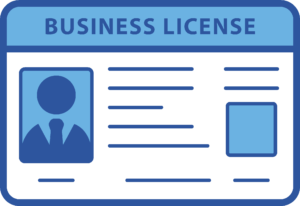
User Intent
People searching for information on a wholesaler food license likely want to understand its importance, application process, benefits, limitations, and comparison with other food business licenses. This guide provides step-by-step details to help wholesalers obtain their license easily.
Introduction
Food wholesaling is a high-demand business, but it requires compliance with legal regulations to ensure food safety. A wholesaler food license is a crucial requirement for businesses that supply food products in bulk to retailers, restaurants, or other wholesalers. This guide breaks down everything you need to know about obtaining a wholesaler food license, its advantages, limitations, and how it compares with other food-related licenses.
Definition
A wholesaler food license is a legal permit that authorizes businesses to distribute food products in large quantities. This license ensures that food wholesalers comply with food safety laws, maintain hygienic conditions, and follow proper storage and transportation protocols. Without this license, operating a wholesale food business is illegal in most jurisdictions.
Application Process (Step-by-Step)
Obtaining a wholesaler food license requires following a structured application process. Here’s a step-by-step guide:
Step 1: Determine the Regulatory Authority
Depending on your country or state, a food wholesaler must apply to a government food safety authority, such as:
- FDA (USA) – Food and Drug Administration
- FSSAI (India) – Food Safety and Standards Authority of India
- FSA (UK) – Food Standards Agency
- Local Health Departments – State or municipal agencies regulating food safety
Step 2: Register Your Business
Before applying for a food license, you must have a legally registered business with a valid business identification number (BIN) and necessary tax registrations.
Step 3: Prepare Essential Documents
You’ll need to submit:
- Business Registration Certificate
- Food Safety Management Plan
- List of Food Products for wholesaling
- Storage and Transportation Plan
- Health & Safety Compliance Certificates
- Owner Identification Proof
Step 4: Submit Application Online or Offline
Most authorities provide an online application portal for easy submission. You may need to visit the local food authority office if offline submission is required.
Step 5: Inspection by Food Authorities
Food inspectors may visit your warehouse or storage facility to verify compliance with hygiene standards and food safety protocols.
Step 6: Payment of Fees
The cost of a wholesaler food license depends on the license type, business size, and jurisdiction. Fees range from $100 to $5,000 annually.
Step 7: License Approval & Renewal
Once approved, your license remains valid for 1 to 5 years. Renewal requires re-inspection and fee payment before expiry.
Benefits of a Wholesaler Food License
✅ Legal Compliance
Operating without a food license can lead to heavy fines or business shutdowns. Having a license ensures compliance with food safety laws.
✅ Enhanced Business Credibility
Wholesalers with a valid license are more trustworthy and reputable among retailers and customers.
✅ Market Expansion Opportunities
A license enables wholesalers to expand operations across different states or countries, depending on legal provisions.
✅ Consumer Safety & Quality Assurance
With strict food safety guidelines, licensed wholesalers ensure high-quality food products, reducing the risk of contamination or health hazards.
✅ Eligibility for Government Schemes
Some governments provide subsidies, loans, or tax benefits for legally registered food businesses.
Limitations of a Wholesaler Food License
❌ Lengthy Approval Process
Depending on regulations, obtaining a food license can take weeks or months, delaying business operations.
❌ High Compliance Costs
Regular inspections, hygiene maintenance, and renewal fees can increase operational costs for wholesalers.
❌ Strict Regulations & Penalties
Failure to comply with food safety laws may lead to license suspension, fines, or legal action.
❌ Geographical Restrictions
Some licenses are valid only in specific regions, requiring additional permits for inter-state or international trade.
Comparison Table: Wholesaler Food License vs. Other Food Licenses
| Feature | Wholesaler Food License | Retailer Food License | Manufacturer Food License |
|---|---|---|---|
| Purpose | Bulk food distribution | Selling food to consumers | Producing food products |
| Regulating Body | Food safety authorities | Local municipal bodies | Food and agriculture departments |
| Inspection Required? | Yes | Sometimes | Yes |
| Scope of Business | Large-scale distribution | Localized sales | Factory production |
| Typical Fees | Moderate to High | Low to Moderate | High |
| License Validity | 1-5 years | 1-3 years | 1-5 years |
Conclusion
A wholesaler food license is a mandatory legal requirement for businesses engaged in large-scale food distribution. While the process may be time-consuming, the benefits outweigh the challenges, ensuring compliance, credibility, and business growth. To succeed in the wholesale food industry, it’s crucial to stay updated on regulations, maintain food safety standards, and renew the license on time.
FAQs
1. How long does it take to get a wholesaler food license?
It varies by region but generally takes 2 to 8 weeks, depending on document verification and inspection.
2. Can I operate without a food wholesaler license?
No. Operating without a license is illegal and may lead to fines, business closure, or legal action.
3. Is the license applicable for online food wholesale businesses?
Yes, online food wholesalers must also obtain a license to ensure compliance with food safety laws.
4. What happens if my license expires?
You must renew it before expiry. If expired, you may face legal penalties or a temporary business ban.
5. Can a wholesaler food license be transferred?
Some jurisdictions allow license transfer upon meeting specific conditions, such as ownership changes.

For further details access our website: https://vibrantfinserv.com
